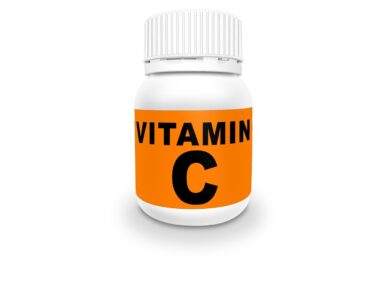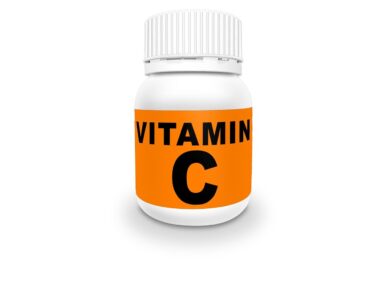Best Plant-Based Omega-3 Supplements for Vegetarians
Adopting a vegetarian lifestyle often raises questions regarding essential nutrients, especially Omega-3 fatty acids. Omega-3s are crucial for heart health, brain function, and overall wellness. Unlike their primary source, fish oil, vegetarians need to find alternative sources to ensure adequate intake. Fortunately, there are several plant-based options available that offer comparable benefits. These supplements typically derive from algae, flaxseeds, chia seeds, and hemp seeds, providing essential fatty acids including ALA, EPA, and DHA. These nutrients play vital roles in reducing inflammation, improving cognitive health, and supporting cardiovascular function. However, not all plant-based supplements are created equal, so it is important to choose high-quality products that are sustainably sourced. Many brands now offer vegan-friendly capsules or oils, which are both eco-conscious and effective. In this guide, we will explore some of the best plant-based Omega-3 supplements tailored for vegetarians, helping you make informed choices for your health. With a careful selection of supplements, a vegetarian diet can meet your Omega-3 needs without compromising your values or health goals.
One highly recommended plant-based Omega-3 supplement is derived from algae, which serves as a direct source of EPA and DHA. Algal oil supplements are rich in these important fatty acids, making them an excellent choice for those who do not consume fish. Unlike fish oil, algal oil is free from ocean pollutants and heavy metals, making it a cleaner option. Numerous studies have shown that algal oil can effectively raise DHA levels in the body, promoting brain health and heart function. Leading brands offer algal capsules that are easy to swallow and don’t have the typical fishy aftertaste associated with fish oils. Additionally, these supplements often come packed with antioxidants, which contribute to their health benefits. Another advantage of algal oil supplements is their lower environmental impact, as they are derived from sustainable marine sources. For vegetarians seeking a natural and effective Omega-3 supplement, algae-based products stand out as a promising option that aligns with their dietary practices while delivering the essential nutrients they need.
Flaxseed oil is a popular vegetarian choice for Omega-3 supplementation and is rich in ALA, a type of Omega-3 fatty acid. ALA can be converted into EPA and DHA by the body, albeit at a lower efficiency. However, flaxseed oil remains a beneficial supplement due to its high fiber content and additional nutrients. It supports heart health by promoting healthy cholesterol levels and reducing inflammation. When choosing a flaxseed oil supplement, it is essential to opt for cold-pressed products, as this process preserves the oil’s nutritional integrity. Flaxseed oil can be consumed in liquid form or in soft gels, providing flexibility based on individual preferences. Additionally, the oil can be easily incorporated into smoothies, salad dressings, or taken on its own. When taken regularly, flaxseed oil helps boost Omega-3 intake while complementing a vegetarian diet. However, vegetarians should also be aware that overconsumption may lead to digestive issues, so moderation is key to enjoying the benefits of this versatile oil.
Chia seeds are another fantastic vegetarian source of Omega-3 fatty acids. Not only do they provide a significant amount of ALA, but they are also high in fiber, antioxidants, and protein, making them a powerhouse of nutrition. Chia seeds can be easily added to a variety of dishes, such as smoothies, oatmeal, or yogurt, where they absorb liquid and create a gel-like texture. This unique property makes them perfect for creating healthy puddings or as an egg substitute in baking. For vegetarians looking to boost their Omega-3 intake while enjoying a crunchy texture, chia seeds are an excellent choice. They can be sprinkled on salads or mixed into baked goods for a nutritious upgrade. Moreover, the seeds have been shown to support digestive health and improve heart function. Whether consumed on their own or as part of a meal, chia seeds can be a delicious and versatile addition to a vegetarian diet while providing the essential Omega-3 fatty acids your body needs.
Hemp Seed Oil: A Nutritious Option
Hemp seed oil is another viable plant-based supplement that offers a healthy dose of Omega-3 fatty acids along with Omega-6s. It boasts a perfect 3:1 ratio of Omega-6 to Omega-3, which is important for maintaining a balanced diet. In addition to essential fatty acids, hemp seed oil is rich in gamma-linolenic acid (GLA), which has been shown to reduce inflammation and support skin health. The oil can be used in salad dressings, smoothies, or simply taken by the spoonful for its health benefits. Quality hemp seed oil is cold-pressed and unrefined, ensuring it retains maximum nutritional value. Additionally, this oil has a mild, nutty flavor, making it a delightful addition to various dishes. For vegetarians seeking a versatile and nutritious Omega-3 source, hemp seed oil provides an excellent option that encompasses a wide range of health benefits. Furthermore, as a sustainable product derived from hemp plants, it aligns with eco-conscious values, appealing to environmentally-conscious consumers.
Incorporating Omega-3 supplements into a vegetarian diet requires mindful selection to ensure optimal health benefits. Quality matters, so it’s wise to check labels for third-party testing to verify the purity and potency of products. As some Omega-3 supplements may interact with specific medications, it’s advisable for individuals to consult with healthcare professionals before starting any new supplement regimen. Additionally, vegetarians should strive to diversify their sources of Omega-3 by incorporating various foods such as walnuts, Brussels sprouts, and algae-based products. Understanding the sources and types of Omega-3 is crucial for making informed decisions regarding supplementation and diet. Furthermore, those who identify as vegetarian may face challenges regarding Omega-3 intake because the body requires sufficient amounts to thrive. Without adequate intake, deficiencies may arise leading to health concerns. However, by choosing reputable supplements and maintaining a balanced diet, vegetarians can successfully meet their Omega-3 needs while enhancing their overall well-being.
Conclusion: Choosing the Right Omega-3 Supplement
Ultimately, selecting the right plant-based Omega-3 supplement hinges on individual health goals and dietary preferences. Whether opting for algal oil, flaxseed oil, chia seeds, or hemp seed oil, each provides unique benefits along with essential fatty acids. Reading customer reviews and consulting health professionals can offer insights into which products align best with personal needs. The growth of the plant-based supplement market provides an extensive array of choices for vegetarians, making it easier to find high-quality options. Some brands even offer Omega-3 blends that combine multiple sources, maximizing health benefits. As more individuals adopt vegetarian lifestyles, awareness around Omega-3 supplementation is increasingly critical for holistic health. By incorporating these supplements into your diet, you’re making strides toward complete nutrition without compromising ethical beliefs. Always remember to lead a balanced diet, enriched with a variety of nutrients while keeping Omega-3 levels in check. Making an informed choice about supplementation empowers vegetarians to maintain their health while enjoying the benefits that Omega-3 fatty acids provide.
As a vegetarian, prioritizing Omega-3 fatty acids is essential for holistic health. With an increasing number of plant-based options available, finding the right supplement tailored to your dietary needs is now feasible. Each option, such as algal oil and flaxseed oil, ensures you receive essential nutrients without compromising your values. Adapting your diet while incorporating these supplements can be simple and enjoyable. Look for reputable brands that prioritize sustainability and transparency in sourcing their ingredients. Regularly consuming a blend of these sources keeps your Omega-3 levels robust and supports your overall long-term well-being. By consciously selecting your supplements, you connect better with your dietary preferences and nutritional needs.





